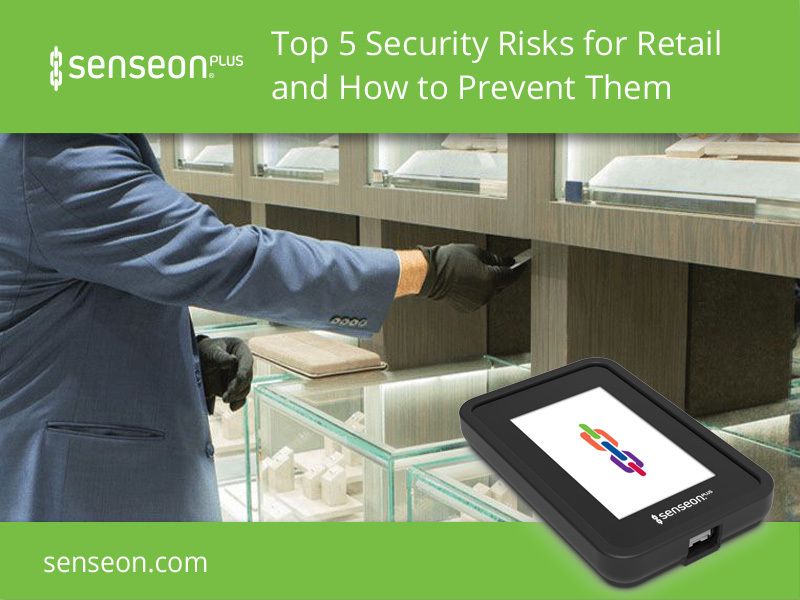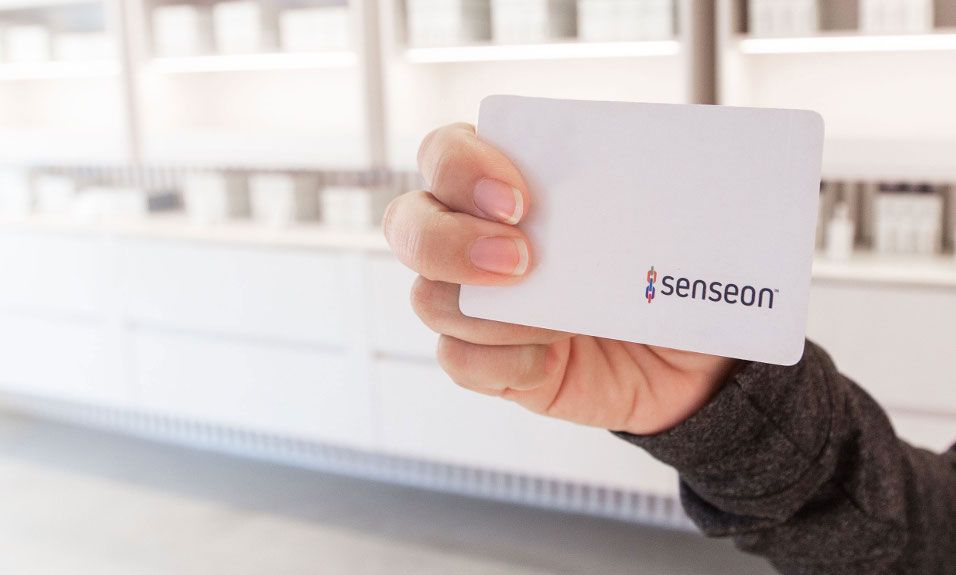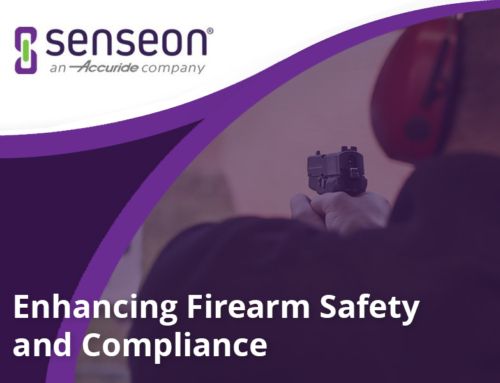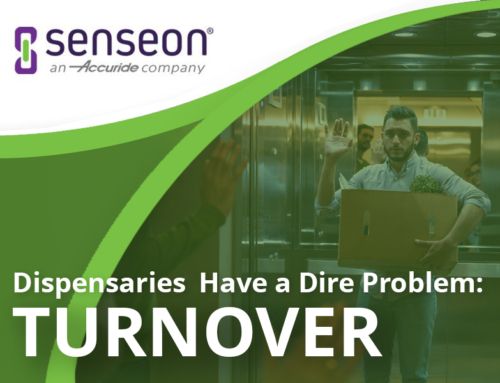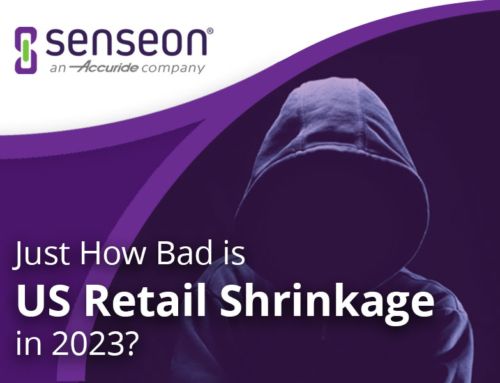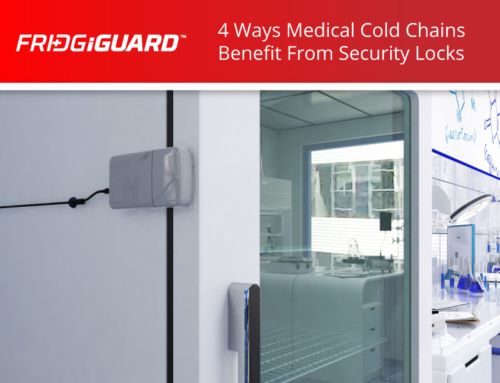Security issues in the retail industry cost businesses billions of dollars each year. Between physical theft and data breaches, U.S. businesses lost over $50 Billion in 2018, with losses continuing to increase year over year. In order to properly protect your business, you must first understand the risks involved. Below, we have provided the top five security risks for retail as well as key actions you can take to better protect your business.
1. Data Breaches
Since the beginning of the pandemic, e-commerce has grown over 30%, an increase in online shopping that is likely here to stay. With more business happening online, the risk for data breaches is greater than ever. The consequences of this can be detrimental for small businesses. According to a recent report by IBM, data breaches have a global average cost of $3.86M and $8.64M in the U.S.
Hackers often see small businesses as attractive targets due to the assumption that these businesses do not have sophisticated security systems in place. Thankfully, there are many actions small businesses can take in order to improve their online security, such as:
- Use a reliable antivirus software specific to small businesses like Avast Business Antivirus Pro Plus, McAfee Total Protection, or Norton Small Business.
- Set up your firewall.
- If possible, get a cybersecurity audit from professionals.
2. Employee Theft
Unfortunately, employee theft is a growing problem within the retail industry. Most employees are completely trustworthy. Nonetheless, it is important to remain vigilant as the average dishonest employee case cost businesses $1,139.32 in 2019. Consider these ways to better protect yourself and your business:
- Do thorough background checks. Look for criminal records, with an emphasis on theft, as well as employment history. Be mindful of any potential red flags.
- Train your employees thoroughly on security protocols, including how to identify and report theft.
- Every night after closing, do an inventory check. To expedite this process, consider utilizing an audit trail software that monitors cabinet access and will alert you of any unauthorized access attempts.
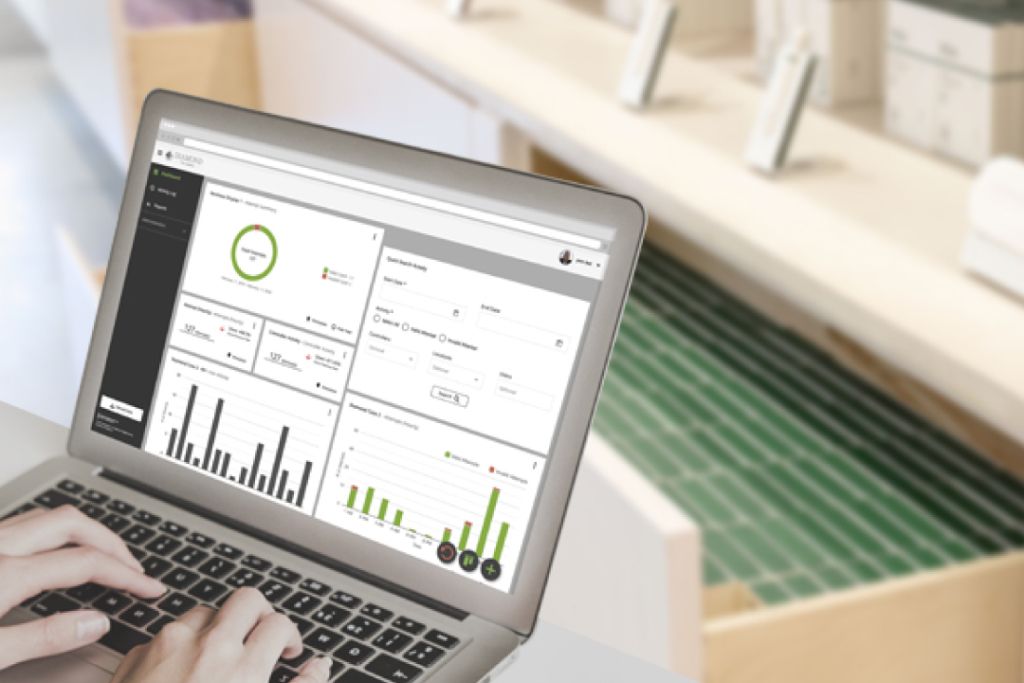
Use the Senseon Plus cloud-based audit trail software to monitor how your inventory is being accessed.
3. In-store Theft
A recent survey by the National Retail Federation revealed the average in-store theft incident cost businesses $270.06 in 2019. After multiple incidents, these costs can add up to thousands of dollars lost, negatively impacting your business’s bottom line. Thankfully, in-store theft can be mitigated with a few key steps:
- Monitor your store with well-placed security cameras as well as alarms.
- Secure inventory with a cabinet-level access control system. A smart system such as Senseon Plus can offer extra protection that includes alert/alarm functionality, auto re-lock, and even dual authorization for your most valuable inventory.
- Post signs letting customers know that shoplifters will be prosecuted. This is a simple, low cost, and effective way to protect your inventory.
4. Fraud
A generous return policy is something that consumers expect when choosing where to shop, but returns can also lead to fraud. The National Retail Federation reported that, on average, 11% of purchases are returned, with an average 8% of returns being fraudulent. The most common acts of fraud are returning stolen items, forging receipts, and returning items bought on sale from one store to get full price at another. Prevent fraud by:
- Opening all boxes at the point of return before offering a refund.
- Requiring customers to provide proof of purchase, such as a digital receipt, in addition to physical receipts.
- Tracking returns to see if there is a pattern of a particular customer returning many items.
5. Lawsuits
Slip and fall lawsuits are one of the biggest risks to your retail establishment. There are people who make their money by staging accidents and then suing the store owner. Lower your risk with three simple steps:
- Get good insurance. This is step one and something you should not overlook.
- Ensure security cameras monitor the entire store in order to guarantee any accidents will be caught on tape for your review.
- Train employees to be vigilant. Do not leave wet spots or tripping hazards laying around.
Safety and security are crucial in any retail establishment. Thankfully, some planning and preparation can go a long way in certifying your business is thoroughly safeguarded. With the proper safety and security protocols in place, you will ensure your customers, employees, and inventory are protected, giving you peace of mind and more time to run your business!
Confirm your retail business is safe with Senseon. To learn more about how Senseon is transforming the retail business, visit our Retail Security page or contact us!

